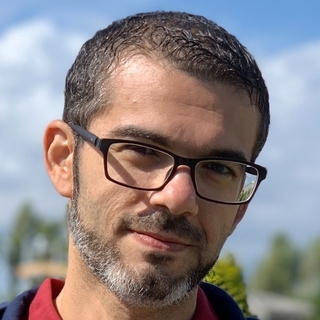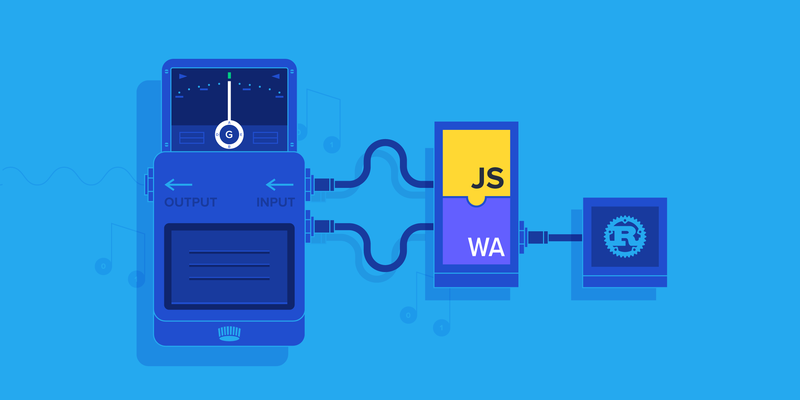The Demand for Rust Developers Is at an All-time High
The need for Rust programmers, particularly in systems programming and cross-platform development, continues to grow yearly. Rust is a system-level programming language emphasizing performance, security, and concurrency, making it a great choice for projects requiring high performance and memory security. According to the 2024 Stack Overflow Developer Survey, The language is ranked among the top-paying and most beloved by developers, alongside the likes of Java and Python. With the language’s growing adoption in the software, security, and game development industries, its popularity has been steadily increasing, showing no signs of slowing down.
As modern applications push the boundaries of performance, security, and reliability across various sectors, demand for Rust development expertise is rapidly growing. It’s distinctive approach to memory management is especially attractive for companies that want to reduce runtime errors and improve performance in both web-based platforms and mobile app development. It’s cross-platform capabilities are invaluable for companies looking to tackle multiple systems simultaneously, with code compiling across various environments with minimal adjustments.
However, the supply of skilled Rust developers is limited. Although the technology is accessible, its strength lies in its adaptability, systems programming capabilities, and concurrency patterns. An experienced developer possesses deep knowledge and expertise in these areas. With the rising need for Rust-driven applications, hiring managers and recruiters should understand how to find, assess, and onboard the right talent for their development teams.
The distinction between a developer and an outstanding developer lies in the ability to continually adapt, innovate, and stay on top of evolving systems. Rust is regularly updated, requiring developers to continuously upgrade their technical skills. This adaptability is especially critical when working on complex Rust projects or collaborating with remote Rust developers to meet project requirements efficiently. This guide shows you the most effective ways to seek out the talent you need to bring your project to life and provides guidance for the crucial hiring and onboarding processes.
What Attributes Distinguish Quality Rust Developers From Others?
Expert Rust developers have years of experience building and maintaining systems applications and cross-platform software. Their technical expertise spans multiple stages of the software development lifecycle. With senior developers, leadership skills are also expected and highly sought-after. Strong problem-solving abilities are essential for navigating complex challenges during development cycles. Here are other key attributes to look for during the hiring process:
Expertise in the language: Expert Rust programmers should be proficient in the language’s data structures and syntax, as well as advanced concepts such as ownership, borrowing, and memory management, which are essential to its approach to system safety. Mastery of it’s concurrency model and asynchronous programming, which encompasses popular libraries such as async-std and Tokio, is critical for software engineers working on efficient concurrent systems. Expertise in frontend frameworks like Vue can also complement a Rust developer’s skill set when working on web-based platforms or integrating UI components seamlessly into backend systems.
Concurrency management and asynchronous programming: One of Rust’s most attractive features is its powerful concurrency model. Experienced programmers should have a deep understanding of asynchronous programming and how to utilize libraries like Tokio and async-std to develop responsive applications that scale according to need. Concurrency management is also crucial to Rust-based environments, especially when designing systems to manage numerous simultaneous tasks efficiently without compromising safety.
Cross-platform development: Rust’s ability to compile across different platforms makes it an incredibly effective programming language for cross-platform development. A skilled developer should be adept at navigating the intricacies of writing code that runs seamlessly on Linux, macOS, Windows, and even WebAssembly. This cross-platform adaptability is especially beneficial in fields like cloud-native applications and embedded systems, where portability and efficiency are central.
Structural design patterns and architectural principles: A seasoned developer should have a sound knowledge of architectural principles and design patterns suitable for low-level programming. This expertise is indispensable when designing and building an application from scratch or updating existing software to optimize security and performance. Depending on the complexity of your project, look for candidates with expertise in patterns like the Entity-Component-System (ECS) or Actor-based models for concurrent systems.
Testing and debugging: Robust testing is an essential part of software development. Experienced developers adhere to a test-driven approach to development and embrace tools like cargo test for unit and integration testing. Rust’s strict compile-time checks are only part of the equation; a great developer will be able to write comprehensive tests to ensure runtime behavior matches expectations. Proficiency in debugging tools like lldb or gdb, as well as familiarity with the language’s built-in error handling mechanisms, such as Result or Option, are essential for maintaining code quality throughout the development process.
Communication and other soft skills: Technical expertise alone is insufficient to identify the right candidate for your team. Truly competent programmers also possess a range of soft skills, including being open to feedback and communicating effectively with technical and non-technical stakeholders. They should also be comfortable working in teams and fit seamlessly with team and company culture. Be on the lookout for a great team player who values collaboration.
How Can You Identify the Ideal Developer for You?
Before seeking developers, it’s important to delineate your project’s needs, goals, and budget. Determine which skills are essential for your future hire, depending on whether your project involves performance-critical applications, embedded systems, or web-based platforms. Ensure that you clearly outline your expectations when it comes to experience and project scope. Clearly outlining project requirements ensures candidates understand expectations from day one while allowing hiring teams to focus on resumes that align with those needs. Once you have done this, you can focus on finding candidates who will be the perfect fit.
Assessing a Rust Developer’s Years of Experience
Not all projects require the same level of expertise. Junior and senior developers each bring distinct strengths, and the right choice depends on your project’s complexity and scale.
Junior developers understand the basic concurrency concepts of Rust’s ownership model and have experience using Cargo, its package manager. They should also have deep knowledge of core libraries and data structures, but may lack experience with complex systems programming. Junior developers are often an ideal hire when your budget is smaller and/or you need a programmer to handle smaller projects. Junior developers are often more productive on teams with senior developers who can provide guidance and supervision.
Senior developers, on the other hand, possess advanced knowledge of systems programming, performance optimization, and memory management. A senior programmer should easily understand asynchronous programming and be adept at using concurrency frameworks like Tokio, async-std, and more. They should also have experience designing architectural patterns that favor low-level programming and be well-versed in cross-platform development. Senior developers are typically equipped to manage complex project architectures and guide the team to ensure long-term code maintainability and scalability.
Complementary Technology Skills
Depending on the type of project, developers may benefit from various complementary technology skills.
Embedded systems and IoT: Rust’s memory safety and low-level access are assets for embedded systems development, where limited memory and processing power must be considered. Developers tasked to develop IoT and hardware-adjacent applications should have experience working with no_std (no standard library) and embedded-focused crates.
Security and safety: The language’s emphasis on safety gives developers the confidence that their software will be reliable. Its built-in safety mechanisms reduce the memory-related vulnerabilities present in other low-level languages. Additionally, its modules and visibility controls enable encapsulation and access restriction, which safeguard internal implementations from unintended use or modification. However, even with the focus on safety, candidates should be aware of potential security risks when working with low-level APIs or integrating external libraries.
WebAssembly: WebAssembly is a low-level binary instruction format that enables code written in several programming languages, including Rust, to run at near-native speed directly in a web browser. Candidates who will work on web applications that require intensive computation will benefit from an understanding of WebAssembly.
How to Write a Rust Developer Job Description
To attract the best talent, craft a job description that is precise, appealing, and speaks to the unique strengths of your prospective candidates. After reading your job description, candidates should clearly understand your business goals, what you are looking for in a developer, and the benefits of joining your team. Begin with a clear job title that includes the level of experience and expertise required, for example, “Senior Rust Developer” or “Rust Systems Engineer.” Provide a brief overview of your company, highlighting its mission, product or service focus, and the most distinctive aspects of your company’s culture. Follow up with a concise role summary that outlines the position’s core responsibilities—such as developing high-performance applications, optimizing low-level systems, or enhancing backend services. Include specific tools and frameworks relevant to the role, such as Actix for web applications, Tokio for asynchronous programming, or WebAssembly for performance and cross-platform support.
Define the essential skills required, emphasizing strong Rust proficiency, systems programming knowledge, and familiarity with development tools like Git, CI/CD pipelines, or Docker. List any complementary skills that would strengthen a candidate’s profile, such as experience with other programming languages like C++ or Python, or familiarity with concurrent programming. State the desired experience level and any educational background you may require. Finally, include the perks and benefits that make the position stand out—flexible work hours, a focus on cutting-edge projects, or opportunities for professional development offered by your company. Close with clear application instructions, making sure candidates know precisely how to apply and what materials to submit.
What Are the Most Important Technical Interview Questions?
Building a technically proficient development team requires an interview process that asks the right questions when vetting candidates. It’s beneficial to ask candidates about past projects, using their responses to transition into a more technical discussion. The following questions provide insight into a developer’s technical abilities:
Explain Rust’s ownership model.
One of the language’s most defining features is the ownership model, which ensures memory safety without a garbage collector. Each value has a single owner, and when the owner goes out of scope, the value is automatically deallocated, preventing memory leaks. Values can also be borrowed or referenced without a change in ownership, enabling safe memory access in concurrent programming. A skilled candidate will clearly articulate how ownership, borrowing, and lifetimes work and discuss how these concepts influence memory management.
How does asynchronous programming work in Rust?
Asynchronous programming in Rust is centered around async and await, keywords that allow developers to write non-blocking code. async defines asynchronous functions, which return a Future, an abstraction representing a value that may become available later. Within async functions, the await keyword pauses execution, allowing other tasks to run. High-quality candidates will be able to explain the language’s approach to asynchronous code and demonstrate familiarity with async runtimes like tokio and smol or rayon.
Describe Rust’s error handling with Result and Option types.
Result and Option types are used to avoid null values and manage errors. The Result type is used for functions that can succeed or fail, returning Ok upon success and Err upon failure, enabling developers to address potential errors. Similarly, the Option type represents values that can be either Some (indicating the presence of a value) or None (indicating the absence of a value). Understanding how to implement robust error handling reflects a candidate’s commitment to building reliable and resilient systems.
What are traits, and how do they differ from interfaces in other languages?
Traits are collections of methods that a type can implement. This enables polymorphism, a characteristic of object-oriented programming useful for code reusability and performance. Traits provide added flexibility when compared to interfaces because traits are capable of providing default implementations for methods. With an interface in object-oriented languages like Java, concrete implementations must be provided for all declared methods. A strong candidate should understand how to implement and use traits effectively.
Discuss a previous project where you implemented concurrency.
This question helps you gauge the candidate’s practical experience with Rust’s concurrency model, especially with asynchronous code. Ask the candidate to elaborate on the challenges they faced, the concurrency patterns they employed, the libraries or tools they utilized, and any lessons learned that might inform future projects.
How do you approach debugging and testing?
Rust’s strict compile-time checks significantly reduce runtime errors, but testing remains a crucial part of the development process. Candidates should describe their testing practices, including the types of tests they use—integration tests, unit tests, and property-based tests—and how they believe these practices help ensure code quality. It would also be valuable to hear about their strategies for troubleshooting complex issues that may arise during development or after deployment.
Onboarding Developers
Onboarding developers effectively is critical for maximizing their productivity and ensuring that they integrate smoothly into your team. Start by providing a comprehensive introduction to your project’s architecture, coding standards and practices, and development workflows. Pair new hires with experienced team members who can offer mentorship and guidance, particularly if they are junior developers who could use the support of more senior team members. Encourage them to engage with the Rust development community through conferences and meetups or by contributing to open-source projects—as this can enhance their skills, keep them current with industry trends, and foster a sense of belonging. Additionally, and most importantly, consider offering all new hires a structured onboarding plan that includes hands-on coding tasks and code reviews to help them acclimate to your codebase and team dynamics.
What is the Cost of Hiring Rust Developers?
According to Glassdoor, the average salary of a Rust developer in the United States is $118,707 as of June 2024. However, when hiring developers, it’s important to consider the associated costs beyond just salary. Skilled developers often require competitive compensation due to their expertise in a language known for its complexity and efficiency. Businesses and startups should also factor in additional costs such as benefits, training, and the potential need for resources throughout the onboarding plan to help new hires acclimate to the team and project specifics. Additionally, investing in ongoing education and development opportunities can enhance employee satisfaction and retention, ensuring that your team remains proficient in the language’s evolving ecosystem as well as with technologies that are complementary to your projects. Ultimately, while the upfront costs may be higher, the long-term benefits of employing great talent who can write reliable, efficient code and contribute to project success and business goals can significantly outweigh the initial costs.
Why Do Companies Hire Rust Developers?
Rust’s versatile and powerful features, as well as its performance and scalability, make it an ideal choice for a wide variety of business applications. Experienced developers are skilled at building and maintaining reliable and efficient applications that scale according to business needs; however, recruiting the right developer for your team can be a challenge, as the programming language’s unique features require deep expertise and extended knowledge in areas like concurrency, memory safety, and performance optimization. Whether in game development, cybersecurity, or cloud infrastructure, the best Rust programmers will have the skills to ensure code quality and reduce runtime errors in your applications, promoting a smoother user experience across platforms.




























